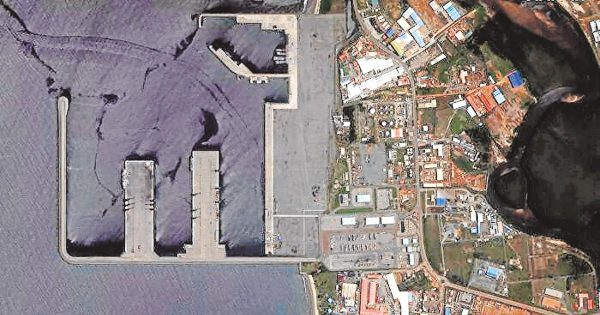Analysis: Political divergences within Nato’s 30 members – from the US to North Macedonia – may well threaten ambitions for its strategy on China
When the North Atlantic Treaty Organization (Nato) was established on 4 April 1949, its mission was to counterbalance armies from the Soviet Union that were stationed in central and eastern Europe after the conclusion of the second world war.
After Emmanuel Macron, the current leader of one of its founding members, France, called it “brain-dead” in 2019, some analysts said the alliance will have to look for a new unifying mission to keep itself relevant in the new age of great power competition between the US and China.
It is of little surprise therefore that the traditionally Russia-focused military alliance has, for the first time, asserted that it needs to respond to Beijing’s growing power during this week’s summit in Brussels, calling it a “systemic challenge” – echoing the EU’s phrase “systemic rival” and the UK’s “systemic competitor”. This follows last week’s G7 summit in Cornwall, where the leaders of some of the world’s richest nations publicly exhibited their dissatisfaction with China.
In public, Beijing is already furious. It has accused the group of seven democracies of “lies, rumours and baseless accusations”. Last week, in response to Nato secretary general Jens Stoltenberg’s remark on China-Russia military ties, a foreign ministry spokesperson urged the alliance to “abandon cold war mentality and ideological bias”.
On the surface, Nato’s pivot to China is yet another example of the intensifying China-west confrontational rhetoric, which prompted Stoltenberg to say there is “no new cold war with China” this week. But Chinese analysts have long been following Nato’s movements in Asia and questioning its ultimate intention in the region. In 2013, for example, the secretary general at the time, Anders Fogh Rasmussen, paid his first visit to Seoul to “step up its partnership” with South Korea. And in 2019, the US secretary of state, Mike Pompeo, urged the alliance to adapt to “Chinese strategic competition”, making Nato’s concern about China more explicit.
The perceived challenge from China is now reflected in a document called Nato 2030. Senior experts handpicked by Stoltenberg note: “Nato must devote much more time, political resources and action to the security challenges posed by China.”
In some ways, the current situation was unavoidable. After all, the gulf between China and the western democracies has been increasing for some time. In Beijing’s vocabulary, the US and its allies are trying to undermine its core interests. And, in the view of Nato, its values seem as being fundamentally incompatible with those of China.
Nato’s newfound consensus on China is a delicate construction, however. Political divergences within Nato’s 30 members – from the US to Turkey to North Macedonia – are a daily reality. They are deemed as “dangerous” even by the authors of Nato 2030, “because [political divergences] enable external actors, and in particular Russia and China, to exploit intra-alliance differences and take advantage of individual allies in ways that endanger their collective interests and security,” the authors warned.
Beyond the rhetoric, what Nato’s China pivot would mean in practice – for example, what assets it could usefully deploy in a confrontation with China – still remains to be seen, said Raffaello Pantucci, a senior associate fellow at the Royal United Services Institute, a defence and security thinktank in London.
“The interesting part, which will get little coverage in the west, is that all of this is happening while Nato remains deployed on China’s borders in Afghanistan. And while no one has been paying attention, China has been ramping up its rhetoric about Afghanistan being used by the United States as a base from which to agitate trouble in Xinjiang,” Pantucci said. “Nato could easily come in the middle of this.”





